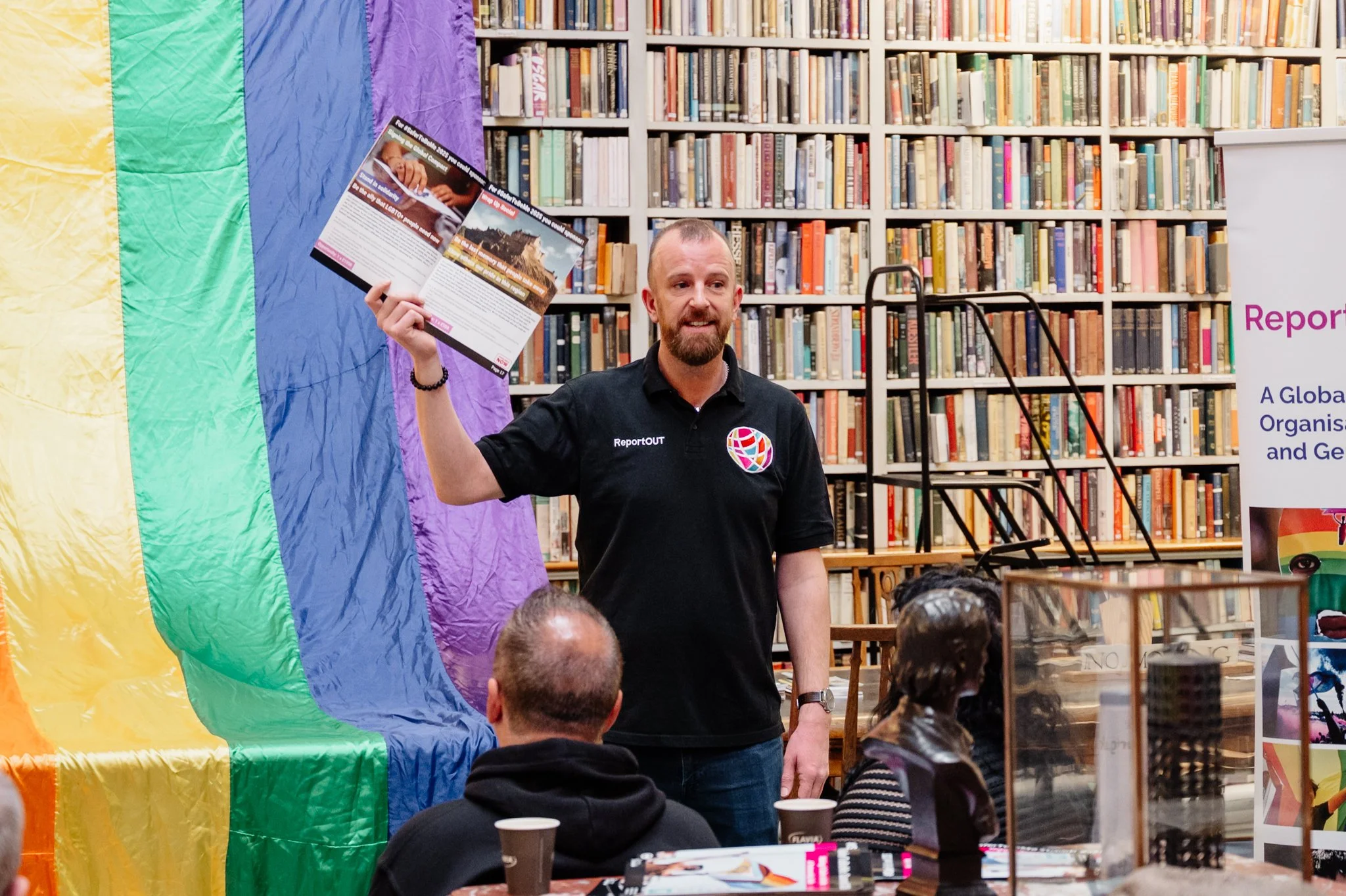From Local to Global: One Summit’s Stand for LGBTQIA+ Rights
LGBTQIA+ rights are under increasing threat and the call for unity, visibility, and action has never felt more urgent.
Stood at the forefront of that call is Drew Dalton (CEO of ReportOUT), Peter Darrant (Chair of Out North East), and Angela Brudenell (Charity Manager of Pride Action North) - fierce advocates and changemakers who are shaping one of the UK’s most powerful platforms for solidarity and change: the #SaferToBeMe Summit.
What began as a small but deeply resonant gathering in Sunderland has grown into something far greater - a national and international rallying point for those who believe in dignity, equality, and the simple right to be oneself without fear. Now preparing for its second iteration, the summit brings together activists, allies, politicians, and everyday people in a powerful act of resistance - and hope.
In this interview, Angela shares the story behind the summit’s founding, the personal experiences that shaped its mission, and the growing need for bold action in the face of rising global hostility.
How does your personal journey as an LGBT+ advocate influence the summit’s vision?
This is actually the second #SaferToBeMe Summit. The first, smaller event took place in Sunderland in 2023 and was hosted by ReportOut, a global human rights charity based here in the North East. What truly inspired me was hearing Drew Dalton, ReportOut’s CEO, speak so passionately about the importance of solidarity and taking action. Over time, I’ve come to deeply admire the incredible work ReportOut does around the world, advocating for LGBTQIA+ people in places where it’s dangerous to be yourself.
After open and honest conversations with ReportOut and Out North East, another incredible LGBTQIA+ charity we work alongside, we began to see a worrying global decline in rights and a rise in far-right attitudes—even in our own communities. It became clear that we needed something bigger—a space that would stand united from local streets to global stages. That’s how the theme ‘From Local to Global’ was born, reflecting the universal nature of this fight for equality.
When I started working at Pride Action North in 2022, I was aware that LGBTQIA+ people already faced disproportionate mental health challenges, but I couldn’t have predicted how quickly things would worsen. The moment it really hit home for me was seeing politicians around the world being elected on platforms that openly opposed equality and inclusion. The influence of countries like the United States meant that setbacks there would ripple across the globe.
Since then, I’ve watched with growing concern as the UK’s ranking on LGBTQIA+ rights dropped to its lowest ever. I’ve witnessed court rulings that have deeply affected the transgender community, and I’ve supported young people being denied school places in alternative education due to misinterpretation of government guidance and court rulings. It’s heartbreaking and alarming. The erosion of rights is happening fast, and this summit is more necessary now than ever—to bring people together, to stand strong, and to fight for a safer, more inclusive future.
My own journey has shaped how I see the summit’s vision. Growing up under Section 28, when schools were banned from “promoting homosexuality,” I didn’t even know what bisexuality was. I felt isolated, invisible, and confused. Even today, bisexual people face erasure and stigma, sometimes even within the LGBTQIA+ community, and are more likely to experience depression.
What worries me most is seeing history repeat itself. The new laws and policies feel like a modern version of Section 28—harmful. That’s why #SaferToBeMe is so important. It’s a space to resist this regression and to advocate fiercely for people who often feel unheard.
This year’s theme is 'Local to Global' - why did you choose it, and what impact do you hope it has?
The core mission of #SaferToBeMe is to create safer, more inclusive communities where LGBTQIA+ people—and all marginalised groups—can live openly, freely, and with respect. We want to inspire real change by bringing people together to learn, share, and act in ways that improve lives both locally and globally.This year’s theme, ‘Local to Global’, highlights that while challenges may look different around the world, we are all connected in this fight for equality. For example, Pride was recently banned in Hungary, and being LGBTQIA+ is still illegal in 67 countries. These global issues affect us all, even here in the UK, where we are seeing rights being challenged in new and worrying ways.
By focusing on ‘Local to Global,’ the summit shows how small acts of support in our own communities connect with wider global efforts, making us stronger together. A key part of the summit is launching The Newcastle Declaration—a public pledge where organisations, businesses, politicians, and people from all walks of life can show their commitment to equity, diversity, and inclusion. This Declaration will live on after the event on the ReportOUT website, growing as more people sign on and stand together.
Through education, connection, and shared commitment, #SaferToBeMe aims to create lasting, positive change—so everyone, no matter who they are or where they live, can feel safe and valued for being themselves.
Have there been any unexpected challenges in organising the summit?
LGBTQIA+ communities are facing growing threats—globally and here in the UK. In some countries, being LGBTQIA+ is still punishable by death. Hate crimes are rising, people are being misgendered and dehumanised, and discrimination is increasingly justified under the law. We’re seeing access to healthcare restricted, especially for trans people, with political interference in decisions that should belong to doctors. These aren’t isolated issues—they are part of a coordinated rollback of rights and recognition.
On top of that, organising the summit hasn’t been easy. Coordinating across multiple organisations with different needs takes patience. We’ve worked hard to keep it accessible and inclusive while tackling difficult and emotional topics. Funding has also been a real challenge. Many businesses have already committed to annual Pride events without seeing how different this summit is—this is about survival, safety, and long-term change. With less funding available for LGBTQIA+ causes, every pound counts. That’s why we’re especially grateful to the funders who have supported us. Their backing shows a deep commitment to equity and inclusion—and makes this summit possible.
These hurdles have only strengthened our resolve. Each one has brought us closer together and reminded us why we do this work: because when we unite, we’re powerful.
What does success look like for #SaferToBeMe in the next five years?
At its heart, the summit is about solidarity, visibility, and hope. It brings together people from all walks of life—locally and globally—to say: you matter, you are seen, and you are not alone. It reminds us that LGBTQIA+ rights are human rights, and that in a world where those rights are under threat, we have a responsibility to act.
The legacy lives on through the people it empowers: the young person who leaves feeling heard for the first time, the community member who finds strength in shared experience, and the organisations who return to their work with renewed purpose.
It’s about building networks, sparking conversations, and creating a shared sense of belonging that doesn’t fade when the summit ends.
We don’t truly know what #SaferToBeMe will look like in five years—and honestly, wouldn’t it be wonderful if we didn’t need it at all?
I hope that by then, the world will have changed. That the tide we’re currently fighting will have turned. I want to pass on hope—because we have to believe in something better. I want to see a rapid decline in the hostility we’ve seen in recent years. I want to live in a UK where there are no more protests outside hotels housing refugees, where trans people have access to compassionate and inclusive healthcare, and where laws protect us all, equally and fairly.
So yes—ideally, in five years, we won’t be needed. But if we are? Then we’ll be ready. And we’ll be even louder. If the world hasn’t changed, then we’ll aim to fill stadiums—uniting thousands of people in one message: that it must be safer to be me. To be all of us.
How do you see the summit contributing to global conversations about LGBT+ equality?
In everything we do, representation matters. We’ve worked hard to ensure that the summit includes voices from across the entire LGBTQIA+ spectrum. That means actively involving people from different backgrounds, identities, ages, and lived experiences—not just in speaking roles, but in shaping the event itself. We’ve collaborated with grassroots activists, community groups, and individuals who are too often left out of these conversations. This summit is not about speaking for anyone—it’s about creating space for people to speak for themselves. Keep an eye out for the programming. We have keynote speakers ranging from medical professionals in London, teachers from rural Northumberland to academics from Brazil and much much more.
Allies, businesses, and decision makers have a vital role too. We can't create meaningful change in isolation. Allies help amplify our voices, challenge systems, and shift culture. Businesses have power—they can set standards for inclusion, fund vital work, and influence wider industry practices. Decision makers carry huge responsibility, and our hope is that being part of this summit helps them see the impact of their choices—not as abstract policies, but as real consequences for real people. Their presence at this summit signals that they are listening—and that matters.
We see #SaferToBeMe as a contribution to a much bigger, global conversation. What’s happening in the UK is not unique—there’s a coordinated rollback of rights across the world. This summit is both a response and a rallying cry. It’s a way of saying: we see what’s happening, and we will not be silent. By connecting our local experiences to global struggles, we hope to show solidarity across borders, challenge oppression in all its forms, and keep pushing the conversation toward justice, equity, and change.
If you could send one message to the next generation of LGBT+ activists, what would it be?
Personally, one of the most rewarding parts of this journey has been working alongside organisations who are just as passionate as we are at Pride Action North. Getting to know their work, their volunteers, and building something together has been both challenging and truly uplifting. Connecting with people like Petter Darrent, Chair of Out North East, and Drew Dalton from ReportOut has been incredible—and I hope this is just the beginning of meaningful partnerships and lasting friendships.
What keeps me hopeful is the people around me. Over the past few years, there have been difficult conversations, and some friendships have been tested. But now, I’m surrounded—both personally and professionally—by incredible people who hold each other up. When one of us is struggling, someone steps in. It’s not always easy, especially in this work. We see both the best and worst of humanity, and that can weigh heavily. But I will always stay motivated—because the alternative, giving up, is simply unthinkable.
If I could leave just one message, it would be this: don’t allow another genocide. Whatever it takes, we must never let history repeat itself.
In amplifying diverse voices, fostering global solidarity, and refusing to let history repeat itself, Angela and her collaborators are building more than a summit - they’re building a movement rooted in hope, compassion, and defiance.
The road ahead may be uncertain, but one thing is clear: the fight for equality must be louder, broader, and more united than ever. If we stand together-local to global-then perhaps the future really can be safer. Not just for some, but for all.





